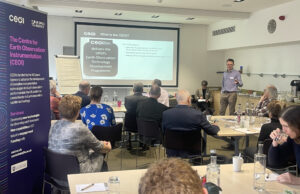Telco leads the charge in Generative AI use and investment

The study, conducted earlier this year by Coleman Parkes Research Ltd. and commissioned by SAS, surveyed 1,600 GenAI strategy and data analytics decision-makers globally to pulse check major areas of investment and the hurdles organisations are facing around the technology.
It asked questions about organisations’ current plans to deploy GenAI, how the technology is integrated into their strategic planning, and what challenges they are facing.
The research found 70% of telcos are currently using GenAI and have either fully implemented it or are running tests ahead of implementation into regular processes across departments including marketing, sales and IT. Additionally, 29% are currently deploying or planning to deploy the technology across the enterprise.
The sector is ranked ahead of other industries in GenAI adoption, where an average of 54% have fully or partially implemented the technology. The next highest adopters are retail (66%), followed by banking and insurance (60%).
Open source large language models (LLM) were found to be the most common approach to adopting LLMs among telcos, with 38% of organisations having already done so, compared to 29% of other industries on average.
Telcos also plan to lead the way in terms of investment, with 89% expecting to invest in GenAI in the next financial year – the joint highest along with the insurance industry.
The biggest concerns for the telco industry regarding the adoption of GenAI are data privacy (83%) and data security (80%). These are followed by ethical implications (60%), and in-house talent and skills (54%).
This pattern mirrors that of other industries, such as banking, where data privacy (74%) and data security (71%) are also the top concerns. Similar trends have been observed in the public sector, insurance, life sciences, and manufacturing industries.
Speaking on the findings, Mari Nilsson Björkman, Telecom Industry Lead at SAS Northern Europe, said:
“It’s not surprising to see the telco industry take the lead in the use and implementation of GenAI. Our research reveals that senior decision-makers not only recognise the significant advantages from using the technology but also appreciate its transformative potential, given that nearly one in three plan to adopt it across the entire enterprise. By leveraging GenAI, they see opportunities to enhance customer engagement through personalised interactions, improve predictive analytics for more informed decision-making, and strengthen their competitive positioning in a rapidly evolving market.
“However, they also recognise the critical importance of addressing associated risks. As the industry continues to innovate, it will be essential for telcos to navigate these challenges effectively to maximise the benefits of GenAI. By prioritising data privacy and security, they can fully harness the power of GenAI to enhance operations and better serve their customers.”
The SAS study sets out a number of recommendations that organisations should follow to successfully deploy GenAI, including the four steps below:
- Strategic deployment
- Comprehensive governance
- Technological integration
- Expert guidance
SAS’ global report on GenAI adoption provides further detail on best practices and strategic insights aimed at empowering businesses to harness the technology’s full potential, along with comparisons across key markets and industry sectors.
Find out more by reading the full report.






